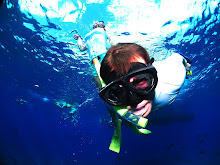Maui Snorkeling
Maui Snorkeling
Snorkel conditions vary depending on their ability and experience will allow them to handle. For inexperienced recreational snorkelers, many safety hazards exist—even in a pool. These hazards include misjudging a dive and hitting one’s head on the bottom, holding one’s breath too long, becoming exhausted, and experiencing sudden cramps while too far from shore or other swimmers.
In rivers and oceans, all maui snorkel swimmers should respect the power of nature. Powerful waves, tides, and currents can easily overpower even the most experienced swimmers, sweeping them out beyond safety or throwing them into coral or rocks. Caves pose additional dangers because swimmers can be trapped inside them. Snorkelers must follow the instructions of lifeguards and obey posted information about water conditions, tides, and other dangers such as jellyfish or pollution. A good precaution for children is the buddy system, in which each child is paired with another while in the water. This system ensures that no person is swimming or snorkeling alone and that if an emergency does happen, the lifeguard can be notified immediately.
Competitive snorkeling is one of the most popular participant sports in the world. In the United States alone, more than 250,000 individuals belong to the sport’s governing organization, USA snorkeling. Many leagues exist for competitive swimmers, including ones sponsored by summer programs, cities, Young Men’s Christian Association (YMCA) chapters, Jewish Community Center (JCC) chapters, high schools, colleges, and Masters Swim programs.
In competition, snorkelers wear a swimsuit, a swim cap, and goggles. Swimsuits are made of a material such as Lycra or Spandex that clings tightly to the swimmer but also permits a free range of motion. A swim cap worn over the hair and ears also helps to reduce the resistance a swimmer encounters when moving through the water. Swim goggles allow swimmers to see better under water. They also protect swimmers’ eyes from irritation caused by chlorine and other chemicals in the pool water, and from salt or pollution in natural bodies of water.
